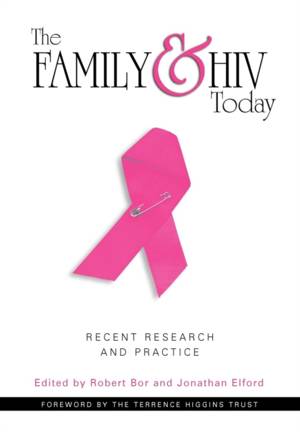
- Retrait gratuit dans votre magasin Club
- 7.000.000 titres dans notre catalogue
- Payer en toute sécurité
- Toujours un magasin près de chez vous
- Retrait gratuit dans votre magasin Club
- 7.000.0000 titres dans notre catalogue
- Payer en toute sécurité
- Toujours un magasin près de chez vous
Description
AIDS is not solely a medical issue but also has profound implications for social and family relationships. Traditionally when a person is ill, the family is seen to provide emotional, practical and social support. Experience has shown, however, that AIDS disrupts this conventional pattern of support. On the one hand AIDS, like any other serious illness, affects family members both from day to day and in the long term. What distinguishes AIDS from so many other illnesses is the associated social stigma and the fact that HIV may be transmissible, or may have been transmitted, within a relationship. Most psychological and social research has concentrated on the impact of AIDS on individuals. Only recently has attention turned to the effect of AIDS on the family. This is the first book to address AIDS in the family and draws on the work of experienced researchers and practitioners from around the world. It is most fitting that the book should first be published in 1994, the United Nations International Year of the Family. Recognizing the role of the family may mark a change in emphasis in future social research and policy in relation to HIV and AIDS.
Spécifications
Parties prenantes
- Auteur(s) :
- Editeur:
Contenu
- Nombre de pages :
- 304
- Langue:
- Anglais
Caractéristiques
- EAN:
- 9780304701889
- Date de parution :
- 01-08-98
- Format:
- Livre broché
- Format numérique:
- Trade paperback (VS)
- Dimensions :
- 170 mm x 245 mm
- Poids :
- 521 g

Les avis
Nous publions uniquement les avis qui respectent les conditions requises. Consultez nos conditions pour les avis.






